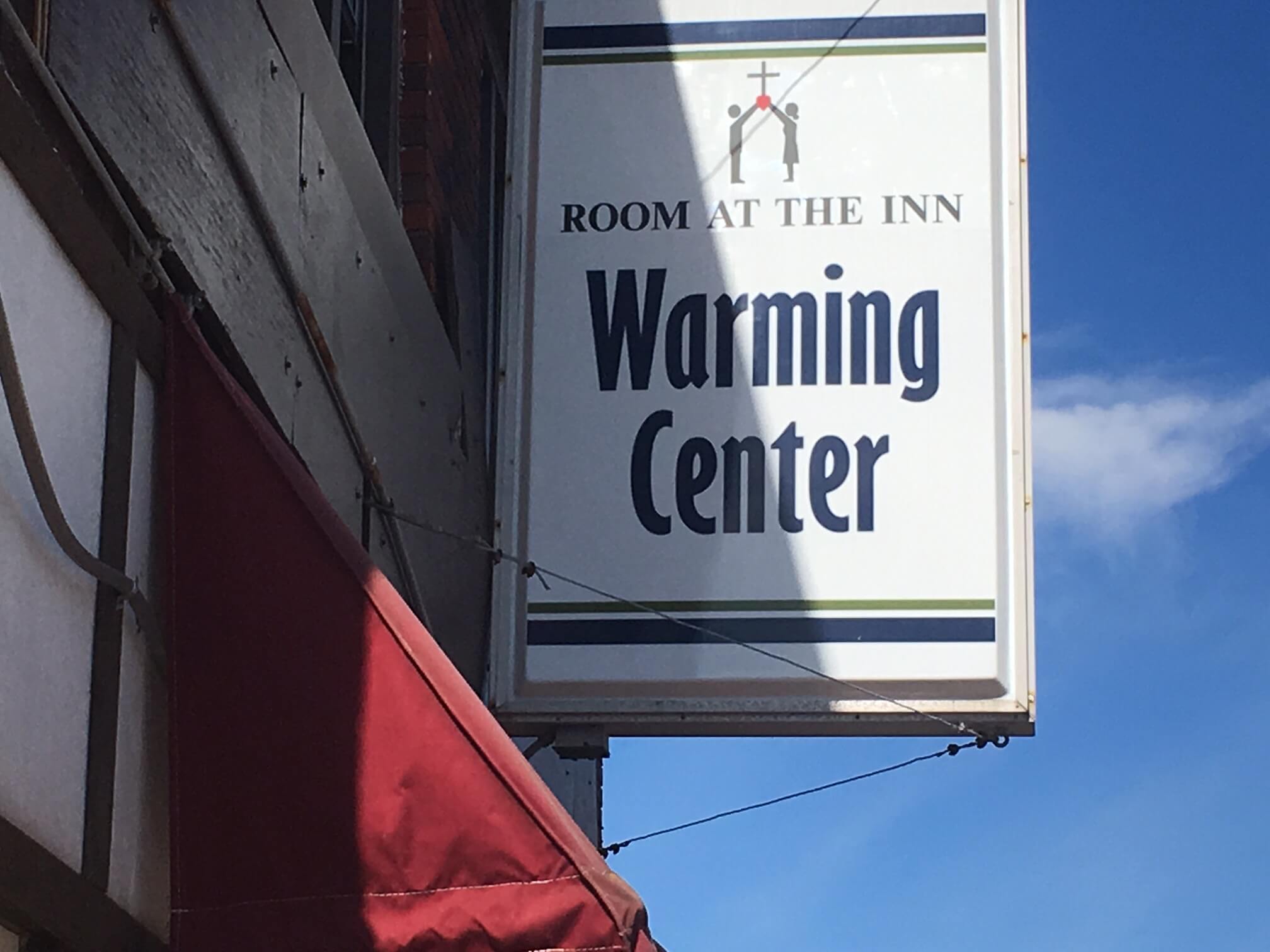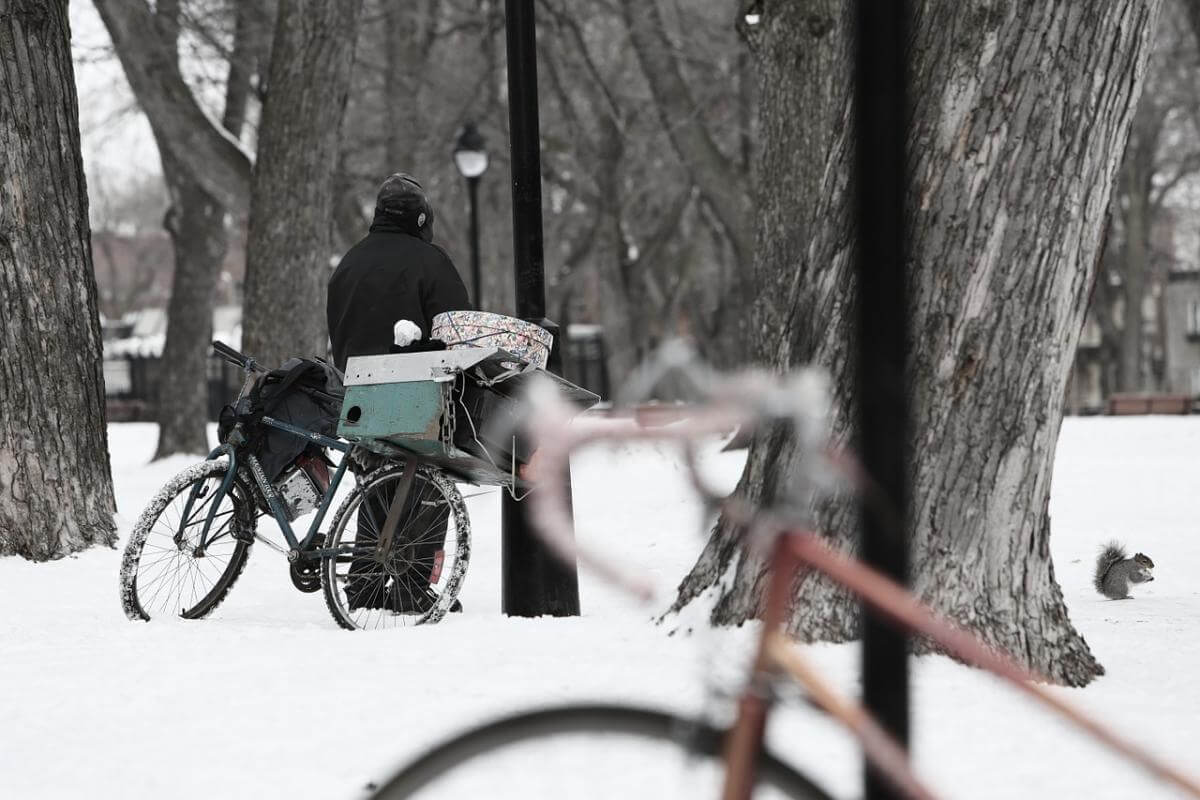“IT’S THE ELEPHANT in the room that nobody wants to talk about.”
Those are the words of Marquette Police Chief Blake Rieboldt. He’s talking about the homeless people in town, and more specifically about the problems some of them are creating for his police force.
In 2015 and 2016 combined, his officers responded to 400 calls regarding “homeless incidents.” That was about one every two days.
In the last six months they’ve had 369 such calls. That’s more than two every day. In the last month, they’ve responded to 87 homeless incidents. That’s almost three a day.
“Oh yeah, it’s a problem,” says Mona Lang, the executive director of the Downtown Development Authority. “I don’t know the answer because there’s a sensitivity to this and I don’t want to seem cold-hearted.”
Police say they started noticing an increase in the homeless incidents–public drunkenness, drug overdoses, passing out, public urination, noise complaints, etc–about ten years ago but that it’s picked up considerably in the last few years.
They’re noticing more illegal campsites around Econo Foods, Founders Landing, Tourist Park, the Ramada, and the bike path. They’re finding needles in the bathrooms at the library and at Masonic Square, and they’re receiving many more complaints from businesses around town. Some merchants have gotten restraining orders against the more troublesome transients.
“I’m empathetic, I really am,” says businesswoman Michele Butler. “But we’ve had continuous problems with people loitering on private property, with littering, with illegal camping here. And they’ve bothered our customers and our neighbors. I’m hoping we can do something about it.”
So does Doug Russell, the executive director of both the Room at the Inn, which provides shelter for the homeless, and the Warming Center, which provides food and showers for them.

He concedes the transient population over the last few years has been changing. “They’re generally younger,” he says. “Many of them never had proper parenting or a stable home life. They have no boundaries. They’re more aggressive with panhandling, and some of them are creating problems downtown.”
But he’ll tell you that Room and the Inn and the Warming Center, both of which were created by a large group of local churches, have a mission: giving comfort to those in need, even when they have substance abuse and mental problems. And the vast majority, he says, come from Marquette County and the Upper Peninsula.
The numbers of people served have increased over the years, but not dramatically. On average now, maybe a dozen people a night are sleeping at the Room at the Inn shelters provided by the churches, and about 40-50 people are eating breakfasts and lunches at the Warming Center.
“Room at the Inn and the Warming Center have good intentions,” says Patrol Captain Mike Laurila, “but I think their services are being taken advantage of. The behavior of some of the people is being enabled.”
Further, the police question whether the homeless are primarily local or even regional. They say they’ve dealt with transients from all over the nation–people who had heard about the services provided in Marquette.
“Is it getting out by word of mouth?” Russell asks. “Yes, for some of them, probably so. They travel and they talk. But if I was homeless, would I really want to come to Marquette in the wintertime?”

Nevertheless, two things seem clear: 1) The numbers of homeless in and around Marquette are increasing 2) And some of them–a distinct minority–are creating an untenable situation for the police.
“People have to understand our resources are taxed,” Captain Laurila says. “It’s taking us away from problems that should have higher priorities.” Problems like larcenies, assaults, drugs, and worse.
“Until the last few years, we were able to be pro-active,” Chief Rieboldt adds. “We were able to deal with problems before they happened. But now it’s too much.”
Too much, as well, for the hospital. Russell points to a recent study of 25 local homeless people who ran up bills totaling one million dollars over the course of a year. All unpaid, of course.
So, what to do?
First of all, Marquette will continue to extend a hand to those in need, including those with serious substance abuse problems. A dozen churches and 400 volunteers have made that clear. The question is how to mitigate the problems on the street.
“It’s all about housing, a shortage of affordable housing,” Russell explains. “But many of these people need to live in supervised housing. Essentially adult foster care. But it would be a place that would keep them off the streets. It would help.”
He says Duluth and Traverse City, as well as cities across the nation, have such homes and they’ve alleviated the problem.
But is that an answer for Marquette, and is there a will (and financing) for such a facility here? Questionable.
Are there other solutions? Chief Rieboldt emphasizes that police alone can’t solve the problem. It’s up the entire community–the residents, business owners, the churches, the volunteers, the City Commission, and the police–to come up with a plan before it gets too late.
Marquette, a quiet, modestly sized town, is starting to acquire big city problems.
“We can’t just ban people, ” Chief Rieboldt says. “But we have to realize that it’s a big problem and it’s getting worse. Something is going to have to give. We may just have to become more tolerant of things in Marquette. Things like drunks and people who’ve passed out on the bike path. If it doesn’t change soon, we’ll just have to stop responding to all the nuisance calls.”
You got news? Email me at briancabell@gmail.com

